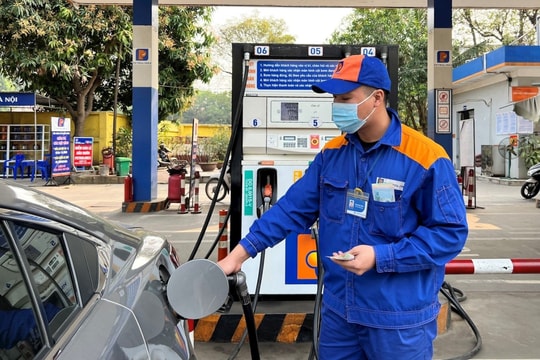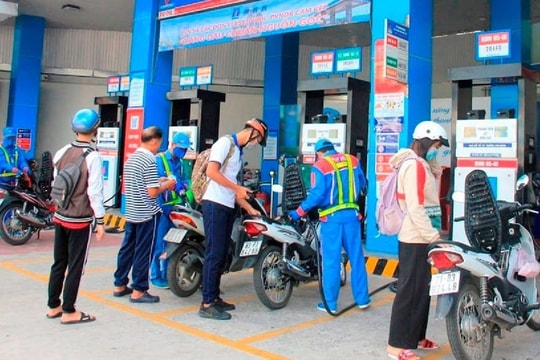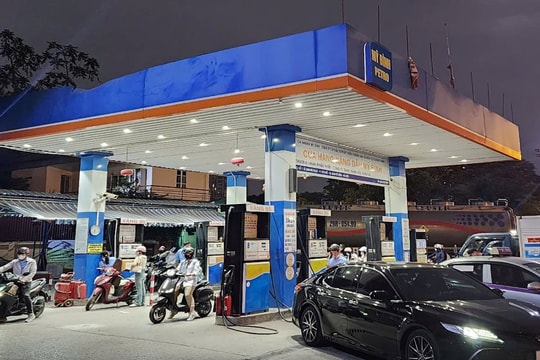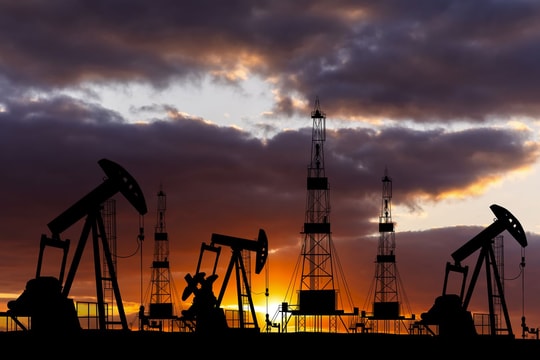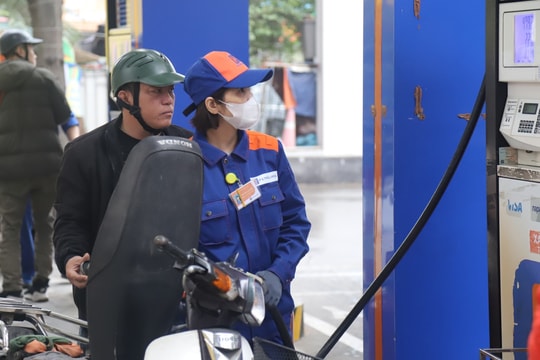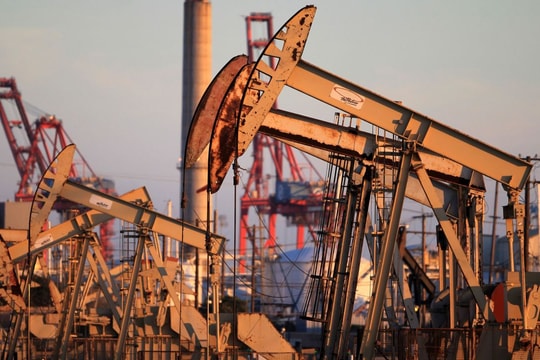Strictly handle cases of "following" gasoline prices for profiteering
Faced with the rising price of gasoline, the Ministry of Finance has requested ministries, branches and localities to strictly control products affected by gasoline prices to promptly handle the situation of taking advantage of unreasonable price increases.
In the recent situation, especially in recent days, the prices of some domestic goods have increased, due to the high world oil prices, on the afternoon of March 14, Deputy Prime Minister Le Minh Khai - Head of the Price Management Steering Committee held a meeting with a number of ministries, branches and localities on the price management of some important and essential goods (oil, raw materials, fuel, iron and steel, fertilizers, agricultural products, medical supplies and services...).
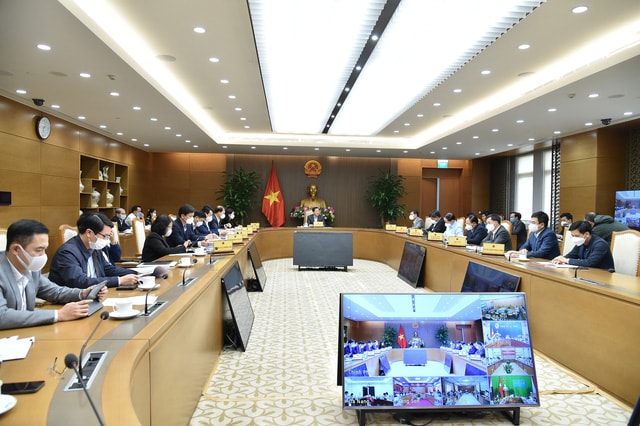 |
| Deputy Prime Minister Le Minh Khai - Head of the Steering Committee for Price Management held a meeting with a number of ministries and localities on price management of some important and essential goods. Photo: VGP/Quang Thuong |
Attending the meeting at the Government Office bridge point were leaders of the Government Office; leaders of the Ministries: Finance, Industry and Trade, Planning and Investment, State Bank, Construction, Transport, Agriculture and Rural Development, Natural Resources and Environment, Health, General Statistics Office, etc. At the local bridge points were leaders of the People's Committees of the provinces and centrally run cities: Hanoi, Ho Chi Minh City, Hai Phong, Da Nang, Can Tho, Lang Son, An Giang.
CIt will be very difficult for the price management agency.
Presenting a report at the meeting, Deputy Minister of Finance Ta Anh Tuan stated: In the face of fluctuations in prices of some goods and raw materials in recent times, the Government and Government leaders have directed the synchronous implementation of solutions and measures on management and operation to stabilize prices, limit fluctuations in price levels that cause negative impacts on socio-economic development, production and business activities and people's lives.
The report emphasized that the reality in the first two months of the year shows that the Government, the Prime Minister and local ministries and branches have proactively grasped the situation and had timely solutions for price management.
According to the Ministry of Finance, up to now, the price level has been basically controlled. However, the price movements of goods and raw materials in the world continue to increase. This creates great pressure on production costs and supply. Price management until the end of the year is very difficult, we must not be subjective.
World oil prices continue to "anchor" at high levels
The report of the Ministry of Finance also summarizes the developments, comments and proposes solutions and measures to manage a number of important and essential goods.
Specifically, for petroleum products, after a sudden increase in the past 2 weeks, world oil prices have shown signs of slowing down in recent days.
However, geopolitical tensions continue to fluctuate rapidly and unpredictably. Parties continue to apply sanctions. In that context, most organizations have commented that oil prices may continue to be high at 110-130 USD/barrel in the coming period. The possibility of oil prices rising to 150 USD/barrel cannot be ruled out.
Emphasizing that domestic petroleum products are currently under great pressure in terms of supply for consumer demand and world price movements, the Ministry of Finance requested the Ministry of Industry and Trade to continue implementing management measures to stabilize supply. Grasp the forecast and movements of world petroleum prices to have appropriate management plans. Use the Price Stabilization Fund reasonably and flexibly to limit the increase in domestic petroleum prices.
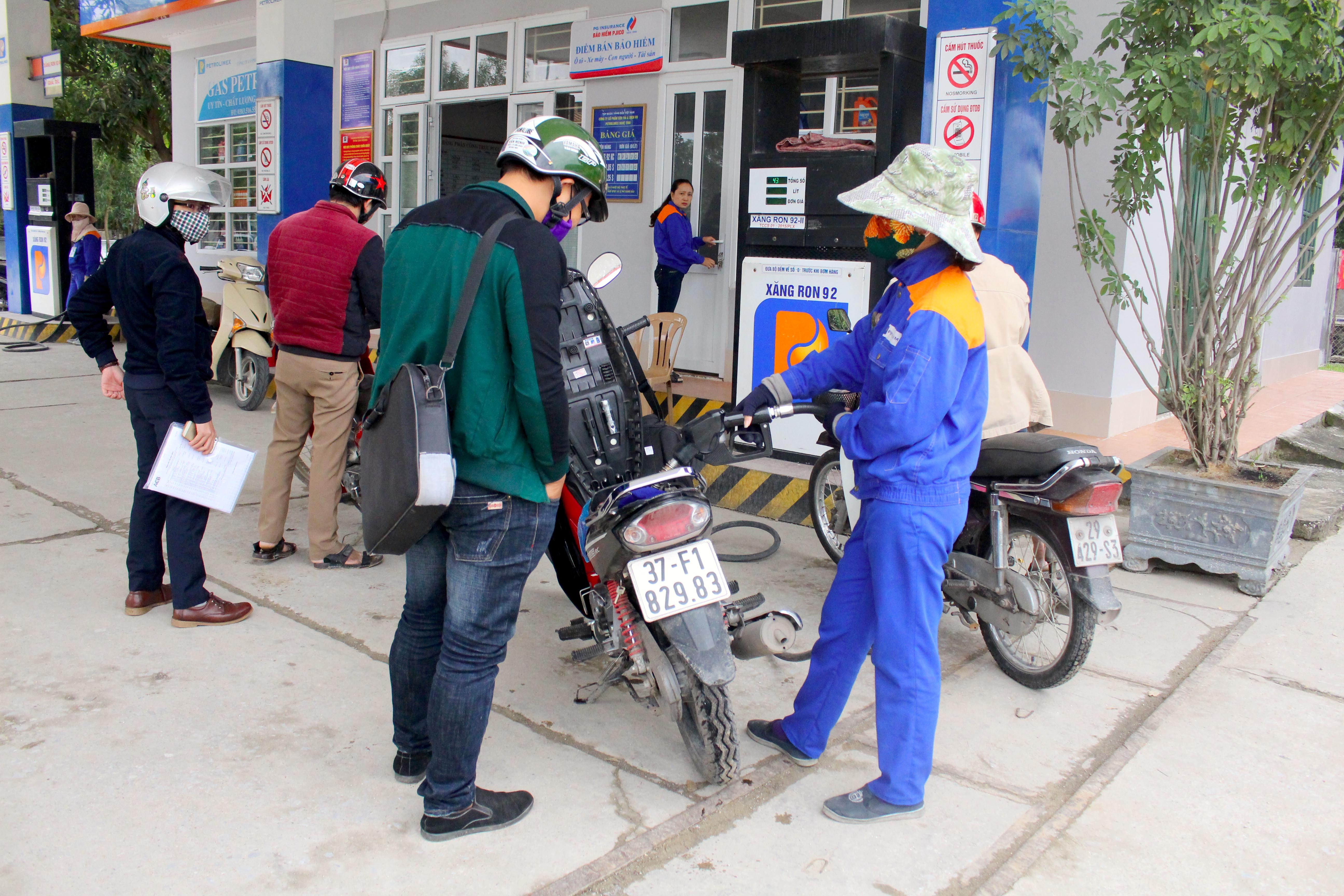 |
| Gasoline prices continue to increase in early 2022. Photo: Quang An |
At the same time, organize and direct localities to strengthen market inspection and control. Strictly handle acts of speculation, hoarding, taking advantage of oil price fluctuations to unreasonably increase prices of goods and services, etc.
Rising gasoline prices put great pressure on transportation
According to the Ministry of Finance, the increase in gasoline prices has put pressure on passenger and freight transport services by road. Currently, transport companies are calculating to increase fares.
The Ministry of Finance requested the Ministry of Transport to provide specific guidance and direction to the Department of Transport of provinces and cities to advise the People's Committees to closely monitor the price changes of gasoline and oil. On that basis, strengthen the organization of reviewing the price declaration of enterprises to assess whether the price increase is consistent with the fluctuations of input factors, especially the cost of gasoline and oil in the price formation factors.
Strengthen inspection of businesses' compliance with price posting and ticket collection at the listed price. Strictly handle acts of taking advantage of unreasonable price increases and charging higher than the listed price.
The Ministry of Finance said that the price of construction steel in the domestic market may continue to increase due to the cost of raw materials and increased domestic consumption demand when key projects are accelerated. In the coming time, the price of main industrial feed ingredients will continue to increase due to limited supply.
In addition, the Ministry of Finance also made a number of recommendations on price management of some essential goods such as: LPG; cement; pork; urea fertilizer; rice; prices of SARS-CoV-2 virus testing services, prices of medical supplies and equipment.
Tightly control goods affected by gasoline prices
Based on the assessment of the price level of goods and services in recent times, the Ministry of Finance forecasts that the CPI in March may continue to be high due to the main impact of rising gasoline prices.
However, the average CPI forecast for the first three months of the year will be at 2-2.1% and still within the price management scenario set out at the beginning of the year.
According to the Ministry of Finance's estimate, if we assume that the CPI in the remaining months increases at the same rate compared to the previous month, then in the remaining 9 months, the CPI will have room to increase by 0.5% each month to ensure the target of controlling inflation at about 4%.
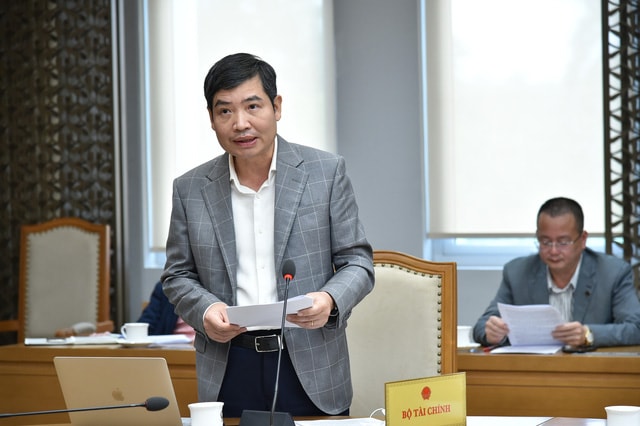 |
| Deputy Minister of Finance Ta Anh Tuan reports on price management of some important and essential goods. Photo: VGP/Quang Thuong |
To proactively respond to challenges in price management in the remaining 9 months of 2022, the Government and Government leaders have issued documents directing specific solutions on price management in 2022 such as: Document No. 882/VPCP-KTTH dated February 10, 2022, Notice No. 65/TB-VPCP dated March 2, 2022. The Ministry of Finance requested ministries, branches and localities to continue to promote implementation until the end of the second quarter of 2022, have detailed plans, assign specific tasks to functional units in the system to promote implementation. In particular, it is recommended to focus on the following measures:
Firstly, the State Bank will continue to implement a proactive and flexible monetary policy in close coordination with fiscal policy and other macroeconomic policies to control inflation according to the set target, while contributing to supporting and removing difficulties for production, business and people's lives affected by the COVID-19 pandemic. Continue to control core inflation in 2022 to create a basis for controlling general inflation.
Continue to closely monitor the developments in the world economy, the general inflation situation, and the price movements of fuels and strategic materials. On that basis, step up the work of synthesizing, analyzing, forecasting, and developing scenarios and response plans in case the prices of goods on the world market continue to increase to manage domestic production, balance supply and demand, and manage and stabilize prices appropriately.
Implement stabilization measures when there are major fluctuations
Proactively and synchronously deploy the proposed solutions for each product to stabilize the market price level. Focus on removing difficulties for production and business to prepare adequate supply of goods to meet consumer demand, facilitating the circulation and distribution of goods and services. In case of major price fluctuations, based on the provisions of the Law on Prices, propose and organize the implementation of appropriate price stabilization measures.
The Ministry of Finance requests the People's Committees of provinces and centrally run cities to carry out state management of goods according to their authority, strengthen inspection and supervision of the implementation of measures: Price declaration; price posting; public disclosure of price information; and inspection of compliance with price laws.
The Ministry of Finance requested localities to strictly handle cases of speculation, hoarding and unreasonable price increases. Proactively check price formation factors according to the provisions of the Law on Prices and according to authority when goods have unusual fluctuations.
Continue to focus on information, propaganda, and transparent disclosure of price information to control expected inflation; limit false information that causes confusion among consumers and destabilizes the market./.


